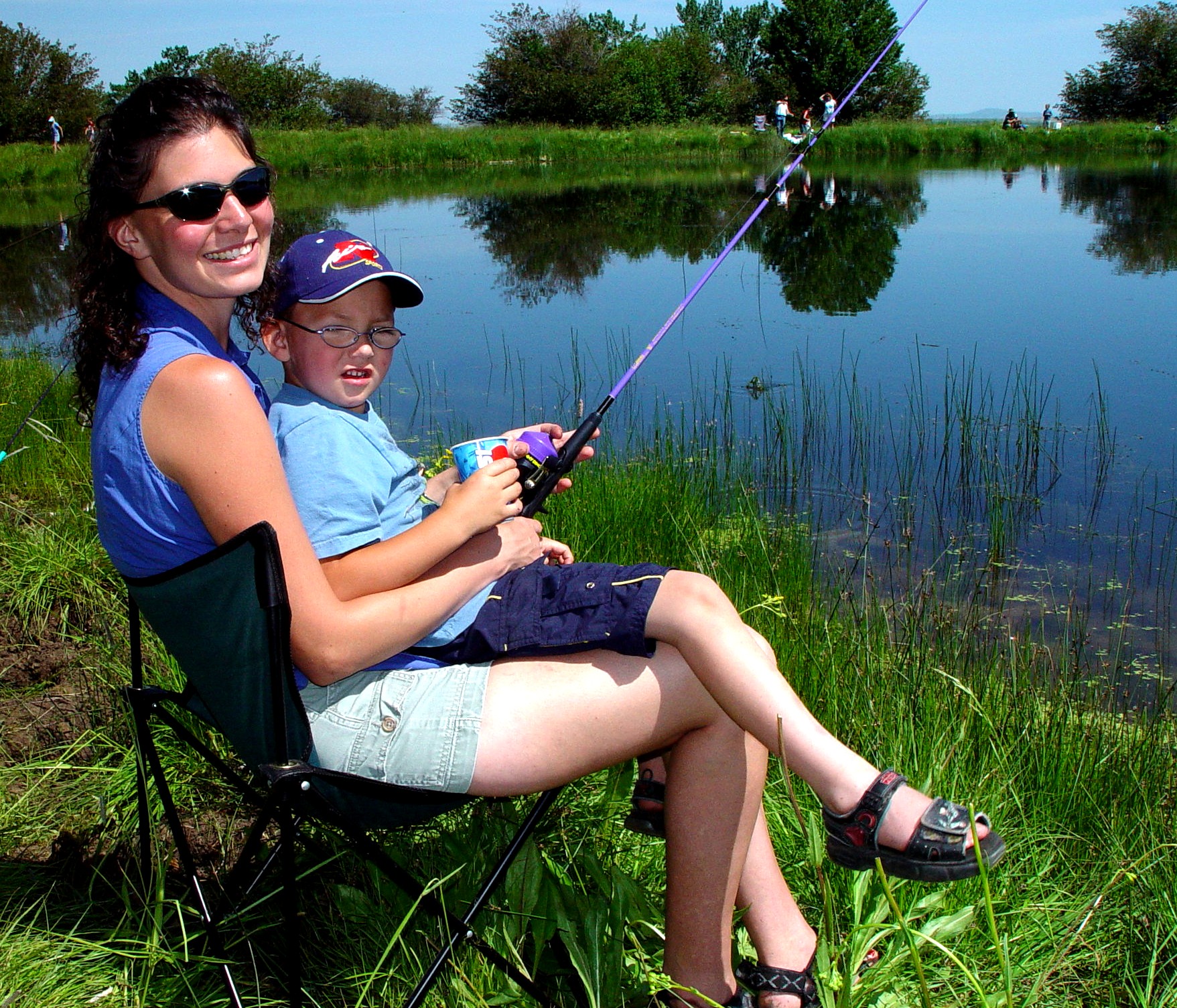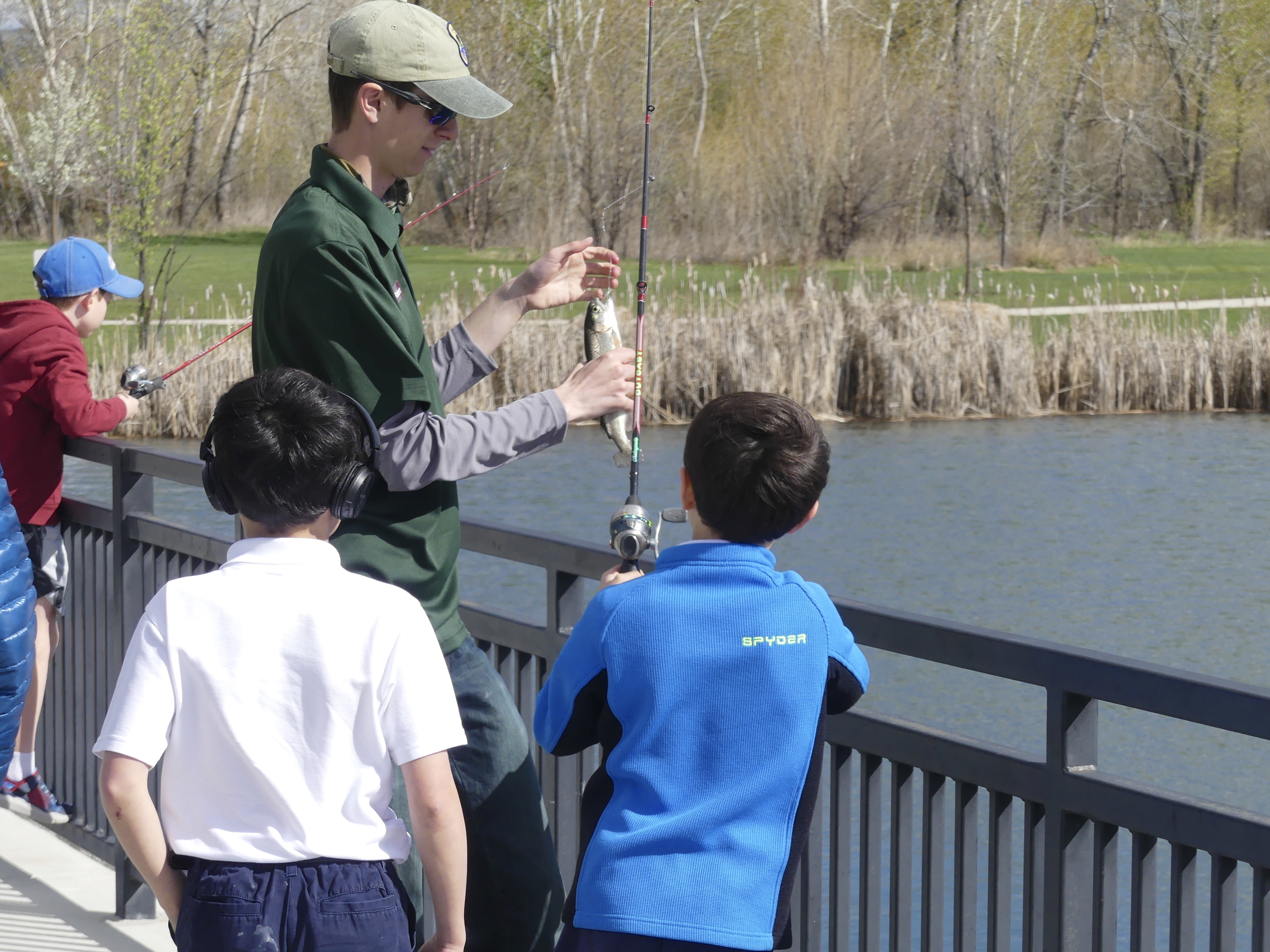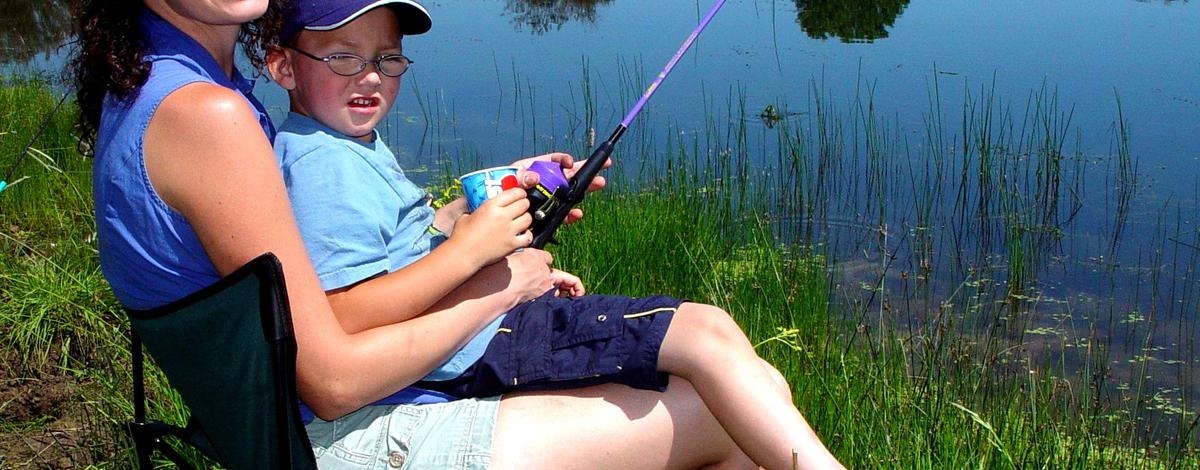Fishing can be a fun sport for kids and parents. Besides spending quality time together outdoors, families can get away from their hectic schedules and enjoy a sun-filled day laughing, talking and enjoying the fresh air.

But introducing young children to the sport, which may seem daunting for some, is actually easy with a little forethought.
"The big thing is patience,” says Greg Schoby, fisheries manager for Idaho Department of Fish and Game in Salmon. “Be positive, make it fun - and remember it’s not just your fishing trip – it’s their fishing trip too.”
Parents should also consider their role as fishing coach as an investment with payoffs in the future.
"If you’re patient and do it right, pay-back time will come later when they take you fishing,” Schoby says.
Idaho Fish and Game recommends keeping these ten simple tips in mind to help ensure your young child loves fishing from the get-go:
1. Catching is key: Getting kids hooked on fishing is about getting a fish on the line fast. And for kids, it’s about numbers caught – not how big. Finding a well-stocked pond or lake is essential. Idaho Fish and Game makes finding local family-friendly fishing locations easy. Visit https://idfg.idaho.gov/fish/family-fishing-waters for locations, tips, events and more.
2. Keep it simple: Short, lightweight poles and closed-face reels are good choices. A few small hooks, a few 1-inch bobbers and sinkers is all you need to get started. If you lack equipment or have never fished before, Idaho Fish and Game’s Take Me Fishing trailers are loaded with loaner fishing rods, tackle, bait and are staffed by experienced anglers that can help. These trailers make appearances at well-stocked fishing holes throughout the state. For a list of free events in your area, visit https://idfg.idaho.gov/fish/trailers.
3. Keep it short: The younger the child, the shorter the attention span. If the fish aren't biting, don't keep kids held hostage watching their fishing poles. Allow some breaks for rock skipping, enjoying some beach time - whatever keeps them happy and lets them enjoy the outdoors. And don’t be surprised if catching fish isn’t their first priority. Just remember - as your child’s attention span gets longer, so will your fishing trips.
4. Be patient: Accept that you will be unsnagging lines, baiting hooks, and probably not fishing much yourself. They will probably get a few tangles, dirty, or even a little wet. But remember - the quickest way to turn children off to fishing is to get frustrated with them. Keeping patient and the outing short - under an hour for beginners - will set you on course for cultivating a lifelong fishing buddy.
5. Snack breaks: Pack a cooler with sandwiches and lots of snacks like granola bars, crackers, peanuts, and a treat or two. Fish for 30 minutes or so and then take a break. Fish for 30 minutes and then take another break. Snacks with breaks can help with moments of frustration and will keep the kids interested longer.
6. Remember the essentials: Besides hook, line and sinkers, be sure to take sunscreen, bug repellant, drinks, a few Band-Aids, and a fishing license if required. Resident youth 13 years old or younger do not need a fishing license, but those 14 years and older are required to have a license in their possession while fishing.
7. Never waste teaching moments: Fishing is not only about just catching fish – creating memories and learning are what’s important. Capitalize on moments to teach them - tell them about bugs, birds, plants, and fish. The outdoors is the best kind of classroom and kids will soak it up like a sponge.
8. Keep a few: Catch and release is an important aspect of angling, but there's nothing wrong with keeping a few for the pan if the fishing rules allow. It can also open their minds on where the food they eat comes from. Just like agriculture, it is important to open your kid’s mind on where people get their food.
9. Leave it better than you found it: Remember to pack out your garbage and encourage kids to pick up too. These lessons mold responsible and conscientious anglers helping to ensure the future of our sport.
10. Good times again: If you want your kids to go fishing again, the "fun" part is most important. Choose a sunny day, take photographs, and just have a good time watching them have a good time. Keep this in mind and regardless of the number of fish caught, each outing will be a success.


